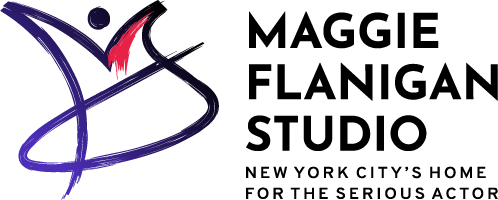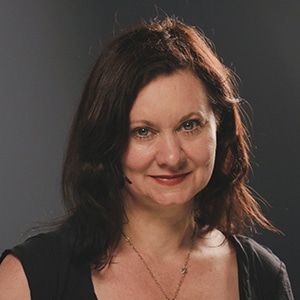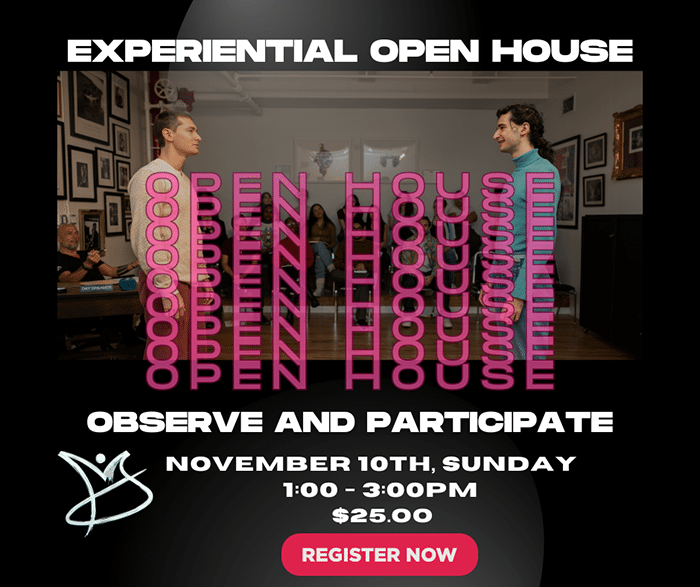Voice 3: Fitzmaurice Voicework®
The core of Voice 3 focuses on Fitzmaurice Voicework®, a world-renowned voice training for actors created by Catherine Fitzmaurice. This semester is also rooted in a continuation of the Linklater voice progression from Voice 1 and Voice 2, and builds on the exploration of connecting the body with breath, voice, language, and the actor’s imagination. A well- developed actor should have the ability to communicate with intention and clarity, without tension, strain, or excess effort.
Fitzmaurice Voicework® combines elements of yoga, full body energy work, bioenergetics, and shiatsu. The goal is to help regulate the actor’s nervous system, which aids in improving brain health, cognitive function, and emotional well-being. The Meisner Technique develops into a sophisticated and profound training exercise. Many things can come up for the student, and sometimes the nervous system can become dysregulated. We believe it is essential for any acting studio in NYC to provide actors with tools to navigate the deep work done in class. Voice 3 will help our students not only develop as actors, but provide them with consistent ways to increase states of calmness during times of emotional distress.
Voice 3 will look at four important areas of the Fitzmaurice Voicework®: Destructuring, Restructuring, Presence, and Play. There is no experience without breath, and for the actor, this connection is crucial if you want to be able to truly illuminate the human condition. Acting classes in NYC often overlook this, which is why so much acting in this country is internally tepid. The Maggie Flanigan Studio is dedicated to producing actors who are deeply experiential. In Voice 3, we will work on spontaneity and free breathing, vocal dimension, simplicity, openness, and the curiosity and sense of wonder that comes with play. This becomes possible when we strengthen the actor’s connection to breath and thought, with the body.
The best actors have cultivated the ability to be seen, heard, and ultimately moved by an audience. This requires an expansion of the actor’s capacity to be fully present, with a fluid awareness of not only what is happening inside of them, but also a connection to what is happening outside of the body. This must be fluid in the actor. The most fundamental aspect of the Meisner Technique is to train an actor to get their attention off of themselves, onto their partner, responding personally from unanticipated moment to unanticipated moment. Voice 3 will continue to support the actor’s ability to do just that.
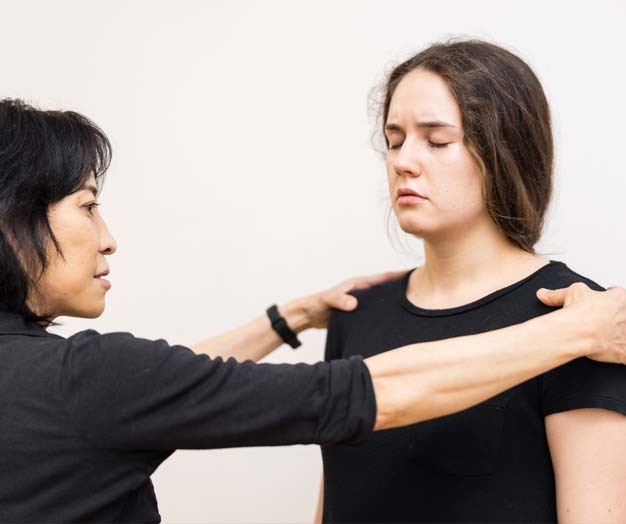
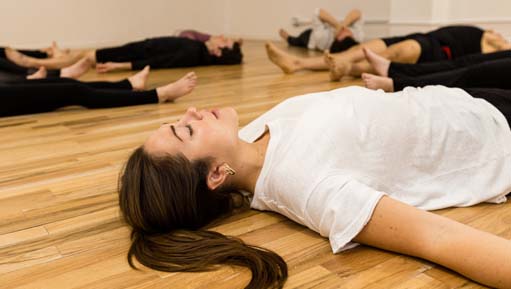
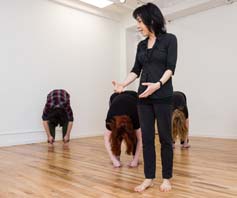
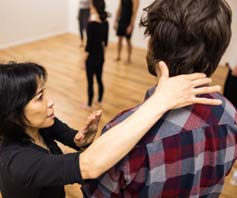
ERIKA ACKERMAN
STUDENT TESTIMONIALS
“This class pushed me and pushed me to try new applications, specifically image work, that took my understanding of Shakespeare to a whole new level. I would take this class again. And again after that. Be warned: You’ll get out of it what you put into it.”

Maggie Belle Caplis
“I’ve never taken a voice class like this one before. By the end of the semester we were all able to live through highly emotional pieces, stay grounded and free in our bodies and still speak with the clarity and connection required for such heightened text.”

Cassie Stewart
“The Studio offers so many amazing classes and all teachers bring immense passion and care for their students. I took Voice III with Amanda Quaid, we worked on dialects. Especially for me as a non-native speaker, this topic freaks me out.”

